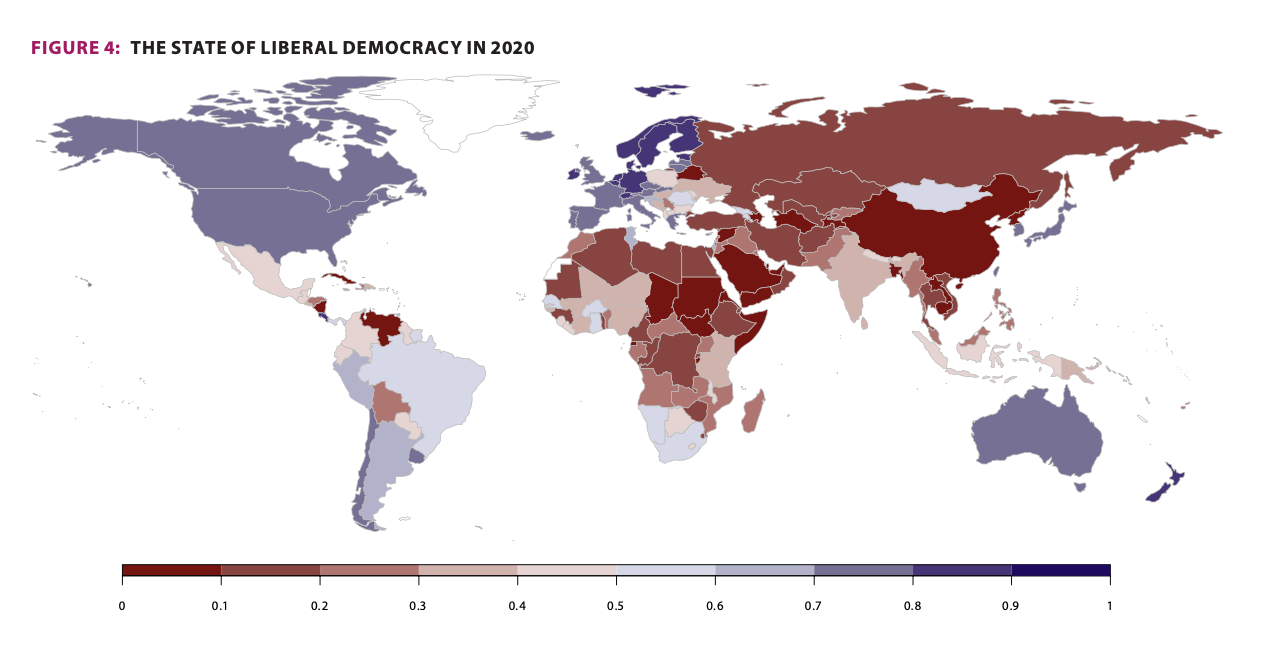International Day of Democracy: Autocratic Challenges
By: Anastasiia Andreeva
Sep 15, 2021
United Nations International Day of Democracy this year comes at a challenging time for freedom. The autocratization-wave is exacerbated by the COVID-19 pandemic. COVID-related states of emergency are used by governments to increase media restrictions, abuse, limitations on legislatures, and disinformation campaigns. Recently, the military coup in Myanmar in February deposed democratically elected leaders and heavy repression to suppress nationwide protests. The Taliban took control over Afghanistan leading to human rights violations and possible upcoming migrant crises. The military coup in Guinea has led to dissolution of nearly all of the governmental institutions.
V-Dem’s Democracy Report 2021 shows that the total share of people living in autocratic states is now 68%, and the level of democracy experienced by the average global citizen in 2020 is back at the level last recorded around, or even before 1989. The map below shows the state of democracy in 2020 based on V-Dem’s Liberal Democracy Index (LDI).
Confronted with such a worldwide surge in autocratization, world leaders have rejuvenated the idea of a global coalition of democracies. For instance, US President Joe Biden announced his intention to convene an international Democracy Summit. Boris Johnson has proposed a D(emocracy)10, bringing together the G7 states with Australia, India, and South Korea. German foreign minister Heiko Maas suggested a Marshall Plan for Democracy, and Sweden launched the ‘Drive for Democracy’ as a new foreign policy priority. In light of these challenges to democracies worldwide, the V-Dem Institute initiated the “Case for Democracy” program to distribute knowledge and ideas from the academic sphere to policymakers and practitioners. Its goal is to actively outline and promote the socio-economic and security benefits inherent in a more democratic world.
To learn more about the Case for Democracy program, visit v-dem.net.


